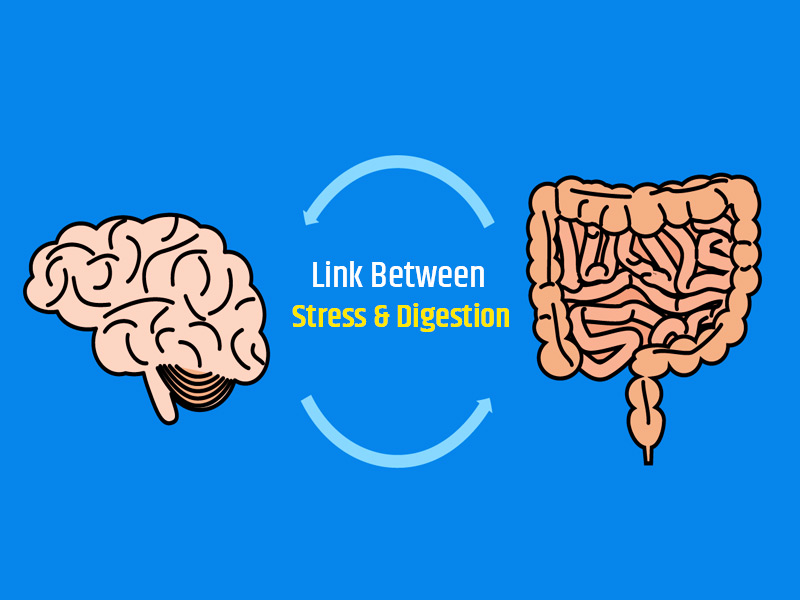In the intricate web of the human body, the relationship between stress and digestive health is a complex and fascinating one. While it’s widely recognized that stress can impact various aspects of physical and mental well-being, its effects on the digestive system are often underestimated or overlooked. However, scientific research has shed light on the profound connection between stress and digestive health, revealing how stress can influence everything from gastrointestinal function to the composition of the gut microbiome. In this comprehensive exploration, we’ll delve into the latest findings from scientists, uncovering the mechanisms behind the stress-digestive connection and examining strategies for maintaining optimal digestive health in the face of stress.
Part 1: Understanding Stress and Its Impact on the Body
Before we delve into the specifics of how stress affects the digestive system, it’s essential to understand what stress is and how it manifests in the body. Stress is the body’s natural response to perceived threats or challenges, triggering a cascade of physiological changes designed to help us cope with the situation. When faced with a stressor, whether physical, emotional, or psychological, the body releases hormones such as cortisol and adrenaline, initiating the “fight or flight” response.
- The Fight or Flight Response: The fight or flight response is an evolutionary adaptation that prepares the body to either confront the threat head-on or flee from it. In response to stress, the sympathetic nervous system is activated, leading to increased heart rate, elevated blood pressure, and heightened alertness—all of which are designed to help us respond effectively to the perceived danger.
- Chronic Stress and Its Consequences: While the fight or flight response is beneficial in the short term, chronic or prolonged stress can have detrimental effects on health. Chronic stress has been linked to a range of health problems, including cardiovascular disease, immune dysfunction, mood disorders, and digestive issues. When the body is constantly in a state of heightened arousal, it can lead to dysregulation of various physiological systems, including the digestive system.
Part 2: The Gut-Brain Axis: A Two-Way Communication System
At the heart of the stress-digestive connection lies the gut-brain axis, a complex bidirectional communication system that links the central nervous system (CNS) with the enteric nervous system (ENS) of the gut. This intricate network of communication pathways allows the brain and the gut to communicate and influence each other’s function, playing a crucial role in regulating digestion, mood, and overall health.
- The Role of the Enteric Nervous System: Often referred to as the “second brain,” the enteric nervous system is a complex network of neurons located within the walls of the gastrointestinal tract. The ENS controls various digestive processes, including peristalsis, secretion of digestive enzymes, and absorption of nutrients, largely independent of the central nervous system.
- Impact of Stress on Gut Function: Stress can disrupt the delicate balance of the gut-brain axis, affecting gastrointestinal motility, secretion of digestive juices, and gut barrier function. In response to stress, the sympathetic nervous system becomes overactivated, leading to changes in blood flow to the digestive organs and alterations in gut microbiota composition.
Part 3: Stress and Digestive Disorders: Exploring the Links
Numerous studies have documented the association between stress and various digestive disorders, including irritable bowel syndrome (IBS), inflammatory bowel disease (IBD), gastroesophageal reflux disease (GERD), and functional dyspepsia. While stress may not directly cause these conditions, it can exacerbate symptoms and contribute to disease progression through its effects on gut function and immune response.
- Irritable Bowel Syndrome (IBS): IBS is a common gastrointestinal disorder characterized by symptoms such as abdominal pain, bloating, diarrhea, and constipation. Stress is known to trigger or exacerbate symptoms in many individuals with IBS, leading to increased gut sensitivity and altered bowel habits.
- Inflammatory Bowel Disease (IBD): IBD, which includes conditions such as Crohn’s disease and ulcerative colitis, involves chronic inflammation of the gastrointestinal tract. While the exact cause of IBD remains unknown, stress has been implicated as a potential trigger for disease flares and symptom exacerbations in some individuals.
- Gastroesophageal Reflux Disease (GERD): GERD is a chronic condition characterized by the reflux of stomach acid into the esophagus, causing symptoms such as heartburn, chest pain, and difficulty swallowing. Stress can exacerbate GERD symptoms by increasing esophageal sensitivity and altering esophageal motility.
Part 4: Strategies for Managing Stress and Promoting Digestive Health
While the link between stress and digestive health is undeniable, there are steps you can take to mitigate the effects of stress on your gastrointestinal system and promote overall digestive wellness.
- Stress Management Techniques: Incorporate stress-reduction techniques into your daily routine, such as mindfulness meditation, deep breathing exercises, yoga, or progressive muscle relaxation. These practices can help activate the body’s relaxation response, counteracting the effects of stress on the digestive system.
- Healthy Lifestyle Habits: Adopting a healthy lifestyle can support both stress management and digestive health. Prioritize regular exercise, adequate sleep, and a balanced diet rich in fiber, fruits, vegetables, and probiotic-rich foods to nourish your body and support optimal digestive function.
- Mindful Eating Practices: Practice mindful eating to promote better digestion and reduce stress-related eating. Slow down, savor each bite, and pay attention to hunger and fullness cues to avoid overeating and improve satisfaction with meals.
- Seek Professional Support: If you’re struggling with chronic stress or digestive issues, don’t hesitate to seek support from healthcare professionals such as a therapist, gastroenterologist, or registered dietitian. They can provide personalized guidance and interventions to help you manage stress, alleviate symptoms, and optimize digestive health.
In the intricate dance between stress and digestive health, fostering a balanced mind-body connection is key to promoting overall wellness. By understanding the link between stress and digestive function and implementing strategies to manage stress effectively, you can support your gastrointestinal health and cultivate a greater sense of well-being. Remember that taking care of your mental and emotional health is just as important as caring for your physical body, and prioritizing both can lead to a happier, healthier life.
